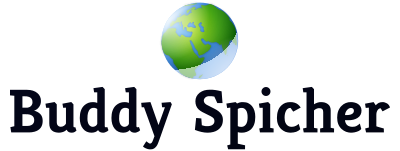Search engines such as Google thrive by earning people’s trust by providing relevant search results that answer questions or resolve problems. To do this, they provide useful results that answer queries quickly.
SEO encompasses an array of tactics and processes, which involve optimizing a website’s technical configuration, content relevance and link popularity to better meet search queries.
Keywords
Keywords are words or phrases recognized by search engines as being relevant to the content on a page and used to describe its topic. Searchers type these terms into search engines themselves to search, so keywords help deliver more pertinent results to users.
There are two categories of keywords, short and long. Short keywords tend to be more widely searched while longer ones can more specifically describe your service offering and draw in targeted customers.
When selecting keywords, it is essential to take both search volume and user intent into account. Search volume refers to how often someone uses a particular term while user intent describes why people search it in the first place. There are four broad categories for search intent – informational, navigational, transactional and local. Each has unique requirements for success that need to be balanced accordingly for maximum effectiveness. In order for you to be successful at selecting effective keywords you must ensure both factors are balanced properly for maximum impactful success.
On-page optimization
On-page optimization refers to any actions taken directly within a website to improve its search engine rankings, such as improving content, optimizing metadata and altering page designs. On-page optimization is an effective way of increasing visitor numbers and building brand authority.
On-page SEO techniques include adding keywords to the URL, title tag and image alt text; optimizing image alt text optimization is also critical; in addition to that, an effective internal linking strategy must also exist that spreads PageRank across pages on a site.
As part of on-page SEO, making sure the content on your website is easily readable is also crucial to its success. Doing this makes it easier for both Google and users to locate what they need on the page and reduces bounce rates that could damage search rankings. Increasing readability also improves user satisfaction and conversion rates – an attribute particularly relevant for e-commerce sites.
Link building
Backlinks play an increasingly critical role in search engine results rankings, with Google viewing them as votes of trust that can indicate whether a website can be trusted and useful to visitors. A site with more backlinks tends to be considered more reliable.
Link building involves marketing your content to other websites in hopes that they link back to it, often at great expense in both time and effort. Though time consuming and challenging, this method may lead to high-quality backlinks which boost search engine rankings.
While there are a variety of methods for building links, one effective approach is to focus on producing original, valuable content that other websites will want to link back to. This could involve writing original and useful pieces targeted specifically toward your audience’s needs or engaging influencers who promote your content on their platforms – either way it will generate a steady flow of links that will boost rankings over time.
Content creation
Content creation is an essential aspect of SEO that involves the production of new material for your website to drive visitors there. Understanding your audience is the key to crafting impactful pieces; asking simple questions or looking at basic statistics may reveal it. For example, if your business specializes in online sales such as ecommerce sales, creating product pages as well as blog posts discussing related topics and videos detailing usage can help your content rank better in relevant search results and lead to more conversions.
Long-tail keywords, which target specific niches, are also critical. For instance, companies selling HVAC services in Harrisburg should target long-tail keywords like “HVAC companies in Harrisburg”. This will enable your target audience to more easily discover your content.
